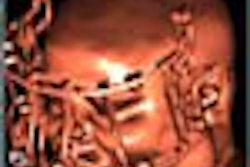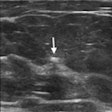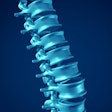With as few as 10% of liver or colorectal cancer patients meeting eligibility for surgical resection, percutaneous radiofrequency (RF) ablation is an appealing alternative -- but at what cost? Investigators from several Massachusetts institutes set out to determine the cost-effectiveness of RF ablation, reporting their findings in the latest issue of the Journal of Vascular and Interventional Radiology.
"Several aspects of [RF ablation] make it particularly appealing as a potential low-cost treatment strategy: RF ablation obviates the need for an open procedure, is easily repeated for treatment failures or new hepatic lesions, and can be performed on an outpatient basis," wrote lead author Dr. Sanjay Shetty from Lahey Clinic in Burlington. Shetty’s co-authors, including Dr. Max Rosen, hailed from Harvard University Medical School and Beth Israel Deaconess Medical Center, both in Boston (JVIR, July 2001, Vol.12:7, pp.823-833).
The researchers reviewed the records of 46 patients who underwent RF ablation for liver neoplasms between October 1998 and August 2000. Of this population, 47.8% had hepatocellular carcinoma, 26.1% had colorectal liver metastases, and 26.1% had metastatic lesions from other primary sites.
All patients were initially evaluated with contrast-enhanced CT or MRI. Ultrasound and CT fluoroscopy were used to guide the RF ablation procedure, which was performed with 17-gauge internally cooled electrodes in either single or cluster configurations (Cool-tip RF, Radionics, Burlington, MA). Patients were imaged immediately after the procedure with CT (contrast and noncontrast). Additional CT scans were done during follow-up at least one month later.
The team looked at three major components associated with the total direct costs of RF ablation: initial evaluation, RF ablation procedures, and follow-up evaluation.
Cost-effectiveness was calculated by a "break-even analysis to determine the required marginal survival benefit that would be required of RF ablation treatment strategy to match [previously reported] benchmarks," the authors said. The cost-effectiveness thresholds were:
- Generous: $100,000/life-year gained
- Moderate: $50,000/life-year gained
- Strict: $20,000/life-year gained
According to the results, the cost-effectiveness of a standardized percutaneous RF ablation treatment strategy was as follows:
- 6 months marginal median survival; $20,424/life-year gained
- 1 year marginal median survival; $11,407/life-year gained
- 3 years marginal median survival; $5,034/life-year gained
- 5 years marginal median survival; $3,492/life-year gained
In addition, the RF ablation strategy would have to generate 6.14 months of marginal median survival benefit in order to achieve a strict cost-effectiveness threshold; 2.26 months for a moderate threshold; and 1.10 months for a generous threshold.
"The total marginal direct cost associated with the RF ablation treatment strategy over palliative care ranged between $9,158 and $17,461 when marginal median survival varied between 1 and 60 months," the study concluded. "Although the marginal cost of RF ablation treatment strategy increases over time because of additional costs of follow-up, the strategy as a whole becomes relatively more cost-effective with increased median survival when considered as an expenditure per year of life gained by treatment."
The imaging modality used in conjunction with RF ablation plays an important role in determining treatment cost, the researchers added. Strategy cost-effectiveness was tied to the reimbursement for technical and professional fees, especially for abdominal CT, which was an integral part of the procedure and the follow-up evaluations. It may be possible to reduce the cost of each RF ablation treatment even further by using ultrasound with a microbubble contrast agent instead, they suggested.
Finally, although this model did not adjust for the quality of life, the authors said their experience indicated that RF ablation resulted in a short recovery period and created minimal disruption for the patient.
By Shalmali PalAuntMinnie.com staff writer
July 31, 2001
Related Reading
Prostate tumor ablation technique uses implanted magnetic rods, February 15, 2001
Prior chemotherapy doesn't affect outcomes in liver tumor ablation, January 24, 2001
Radiofrequency ablation treats unresectable HCC in patients with cirrhosis, January 10, 2000
Copyright © 2001 AuntMinnie.com



















